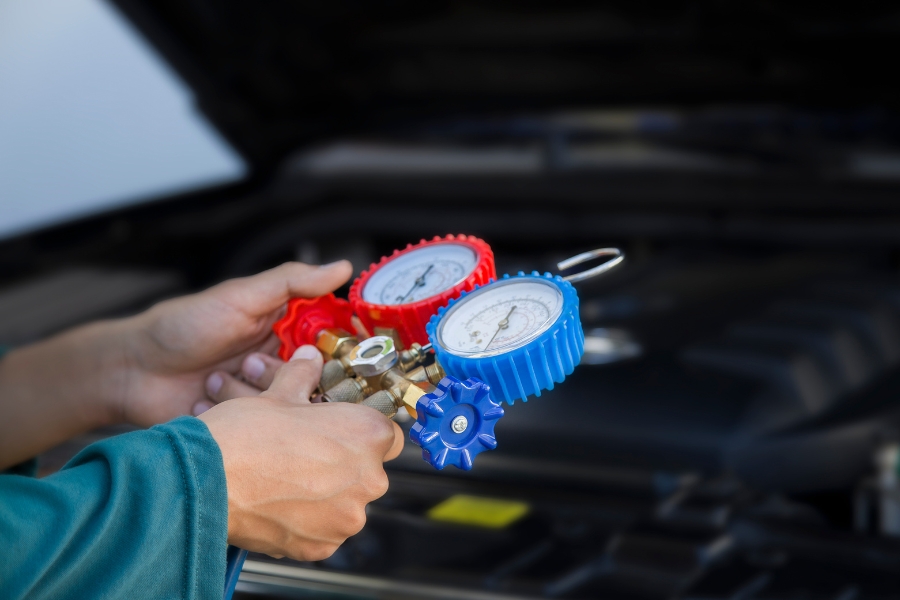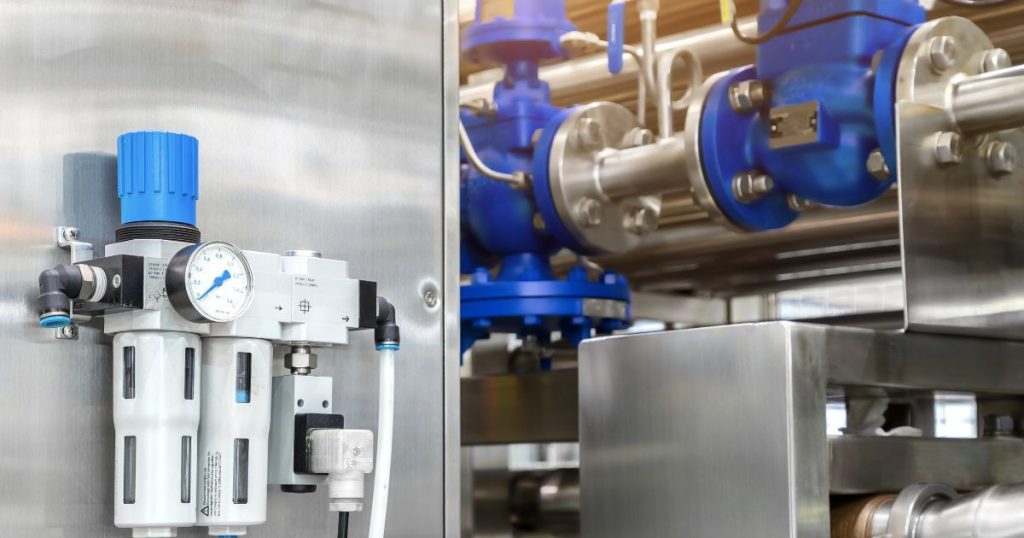Air compressors are vital in workshops, factories, and industrial plants across Australia. To keep them running efficiently, every component in the system plays an important role, including the coolant filter. But what exactly does a coolant filter do, and why is it so essential to a compressor’s performance and longevity?
IN THIS ARTICLE
- What is a Coolant Filter?
- How Does a Coolant Filter Work?
- Why Coolant Filtration is Important
- How Coolant Filters Protect the System
- Signs Your Coolant Filter Needs Replacement
- Installation and Maintenance Tips
- Benefits of a Quality Coolant Filter System
- Choosing the Right Coolant Filter
- Protect Your Compressor With Reliant Coolant Filtration
What is a Coolant Filter?
A coolant filter, sometimes called an inline coolant filter, is designed to clean the coolant fluid circulating through an air compressor’s cooling system. Coolant (or oil in some systems) removes heat generated during compression and lubricates moving parts. Over time, this fluid can collect contaminants such as:
- Dust and metal particles from wear and tear
- Oil degradation by-products
- Scale or rust from the cooling system
- Residue from previous maintenance work
Without proper coolant filtration, these contaminants can circulate through the compressor and damage sensitive components, leading to common air compressor issues. A high-quality coolant filter traps these impurities before they cause harm, keeping the system clean and efficient.
How Does a Coolant Filter Work?
Coolant filters work much like oil filters in engines. As coolant flows through the system, it passes through the filter media, which traps dirt, debris, and particles before they can continue circulating.
Depending on the compressor’s design, coolant filtration systems can be found in several configurations, including:
- Inline coolant filters: Installed directly in the flow path of the coolant.
- Spin-on filters: Which are easy to replace during routine servicing.
- Integrated filter systems: Part of a larger coolant circuit with oil separation and cooling functions.
These filters are designed to withstand high temperatures and pressures, maintaining consistent filtration over long operating periods.
Why Coolant Filtration is Important
Coolant filtration is critical for maintaining air compressor efficiency and protecting internal components. Here’s what a coolant filter does to keep your system healthy:
Removes Contaminants
The primary job of the coolant filter is to remove contaminants from the fluid. Dust, rust, and fine metal particles can cause wear to bearings, seals, and rotors if not captured; signs that your air compressor has worn parts. Regular filtration ensures only clean coolant passes through the system.
Prevents Corrosion and Rust
Moisture and oxygen in the cooling system can cause corrosion over time. A quality coolant filter helps remove impurities that accelerate rust formation, extending the life of the cooling circuit and compressor components.
Reduces Wear and Tear
Particles circulating in the coolant act like sandpaper inside the system. Continuous exposure increases wear on mechanical parts and leads to costly repairs. Coolant filters protect against this by trapping debris before it causes damage.
Improves Cooling Efficiency
Clean coolant transfers heat more efficiently. When the fluid becomes dirty or blocked with contaminants, it loses its ability to remove heat from the compressor. Filtration ensures optimal thermal performance, helping prevent overheating and shutdowns.
Lowers Maintenance Costs
Routine coolant filtration helps avoid breakdowns and component replacements. By preventing contamination and damage, businesses can reduce downtime, maintenance costs, and energy waste, all adding up to significant cost savings.

How Coolant Filters Protect the System
Air compressors rely on a balance of oil, coolant, and air flow. When contaminants enter the coolant, that balance is disrupted. This can lead to:
- Blocked heat exchangers
- Increased operating temperatures
- Accelerated oil degradation
- Reduced lubrication efficiency
By keeping the coolant clean through regular maintenance, the filter ensures that the entire system, from rotors to bearings, stays protected. It also helps maintain correct fluid viscosity and prevents sludge formation, both of which contribute to longer service intervals and better overall performance.
Signs Your Coolant Filter Needs Replacement
Coolant filters don’t last forever. Over time, trapped particles build up and reduce flow through the system. If the filter becomes too restricted, the compressor may overheat or trigger warning alarms.
Common signs that it’s time to check or replace your coolant filter include:
- Rising operating temperatures
- Reduced air output or efficiency
- Visible contamination in the coolant
- Warning lights or error codes on the control panel
- Unusual noises from the compressor
It’s important to follow the manufacturer’s recommended service intervals, usually based on operating hours or months of use. Replacing the coolant filter regularly is a small investment that prevents expensive repairs later.
Installation and Maintenance Tips
Maintaining an effective coolant filter system is straightforward, but it does require consistency. Here are a few practical tips:
- Follow service schedules: Check coolant and filter condition during every major service.
- Use genuine parts: Always install high-quality filters designed for your compressor model. Generic or low-grade filters can compromise efficiency.
- Inspect the coolant: Look for changes in colour, viscosity, or visible particles.
- Check for leaks or pressure drops: These can indicate a blocked filter or failing seal.
- Flush the system when required: Periodically draining and replacing coolant prevents scale and buildup.
If you operate multiple compressors, keeping a coolant filtration log for each unit helps monitor condition and plan maintenance effectively.
Benefits of a Quality Coolant Filter System
A well-maintained coolant filter offers several advantages for industrial and commercial users:
- Extended compressor lifespan: Protects key components from wear.
- Improved system efficiency: Maintains optimal cooling and lubrication.
- Reduced maintenance costs: Prevents costly breakdowns and downtime.
- Better environmental performance: Reduces waste oil and contamination.
- Safer operation: Prevents overheating and pressure fluctuations.
Over time, these benefits translate to a more reliable, economical, and environmentally responsible compressed air system, ideal for businesses seeking long-term value.
Choosing the Right Coolant Filter
Different compressors and cooling systems require specific filter designs. When selecting a coolant filter, consider:
- Compatibility: Ensure it matches your compressor’s make and model.
- Filtration rating: Check the micron rating to ensure it captures fine particles effectively.
- Operating temperature and pressure: Filters must withstand your system’s working conditions.
- Build quality: Look for durable construction and corrosion-resistant materials.
Protect Your Compressor With Reliable Coolant Filtration
If you need advice on selecting or replacing a coolant filter system, our expert technicians at Express Australia are here to help. We supply coolant filters, compressor parts, and complete filtration solutions to keep your operation efficient, safe, and productive.
Browse our range of coolant filters today or contact our team for support with your compressor needs.





